

Making Mistakes Can Be Good
Podcast: Play in new window | Download
Making Mistakes Can Be Good
Good morning. Today I am talking about something that affects every single one of us and that is mistakes. Making mistakes is a normal part of life. We need to be responsible and face up to our mistakes as we hopefully learn along the way. We don’t want to error in the same way over and over again. The problem is that we often over criticize ourselves. We see ourselves as failing and do not recognize all the good things we do.
So here are a couple of mistakes many people make. 1- Forgetting to put on our turning signals and then realizing it after the fact! 2- Finding the mail in our sun visor that we thought we mailed the week before. 3- Misplacing our keys and therefore running late. 4- Rushing and forgetting to turn off a light. The list can go on and on.
Mistakes happen because we are not fully focused or there is a problem on our minds. In this sections we talk about a few simple mistakes that we make and offers steps to follow that may help. Things like Minimizing screen time, Focusing on exciting things like puppies, and reflecting on possible ways to keep moving.  The last portion of the podcast talks about reframing behaviors. What do you need to do to get to the next level. How do you stay refreshed? Who is your accountability person?
The last portion of the podcast talks about reframing behaviors. What do you need to do to get to the next level. How do you stay refreshed? Who is your accountability person?
Take the first step, it may put you on the escalator of success.

Acceptance: Self Confidence in the Making
Podcast: Play in new window | Download
Acceptance: Self Confidence in the Making
On today’s podcast Linda talks about the definition of Acceptance. In our lives we have to learn to accept a variety of things. Unfortunately not everything is what we would like, but we learn to distinguish the reality of circumstances and how we might be able to change things along the way. Using a series of personal experiences you’ll hear a few things that hopefully will guide you ahead. Sometimes we need to look outside of ourselves and see what is really going on.

Looking Outside to see the reality of what is happening!
Linda shares about a story about how a friend’s visit with her to learn about a program some 30 years ago gave her insights. Her friend Sue accompanied her to an information center and afterward helped her accept going forward.
She also talks about accepting or rejecting medical advice. How do you do what is correct? What concerns do you have?
As always Linda invites you to give her ideas and topics. Feel free to call 815-459-5161! Asking for help is wisdom!!!
Take the first step, it may put you on the escalator of success.
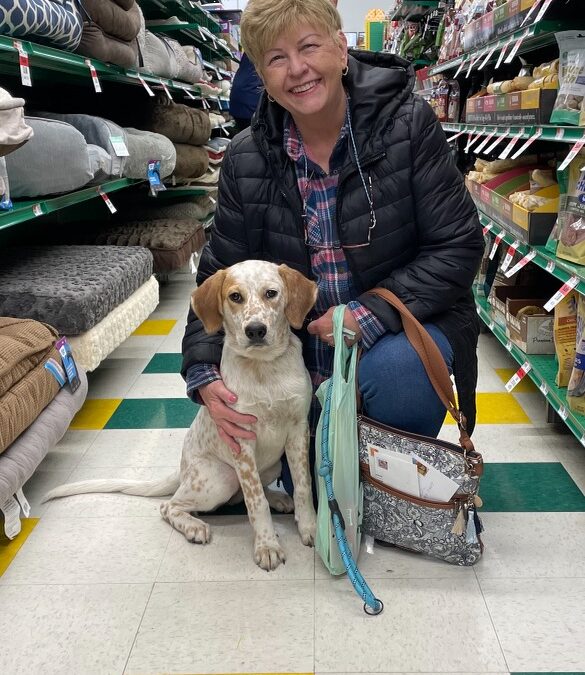
Taking On New Roles to Find Joy
Podcast: Play in new window | Download
Taking On New Roles to Find Joy
We all begin our roles upon birth. We are instantly a child with an identity. We are given a name. We may be the first in the family or one of many siblings, therefore, becoming a brother or sister. Our roles keep developing and we either become good at what we do or we ignore the roles we are given.

Siblings and Cousin roles here.
In this session of Taking on New Roles to Find Joy, you are called to think about and perhaps journal what gifts you have been given in these roles. How does one role enhance and promote growth in another area of your life?

This is a Puppy that is learning her role in our family.
This is a great topic for the New Year. Let your light shine. Become the complete person God designed you to be and develop the relationships around you as well. Listen to what you say and how you respond to others.
Remember when you take the first step it may put you on the escalator of success.
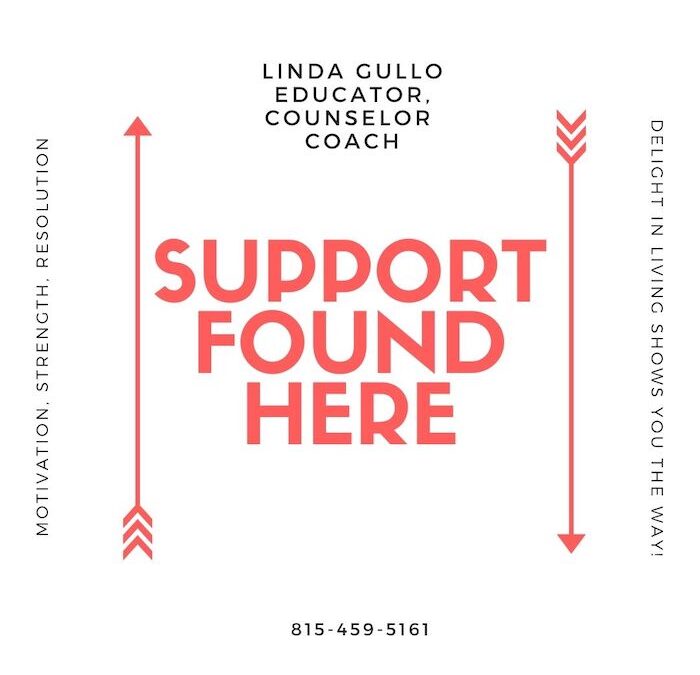
Joy Filled Goals
Podcast: Play in new window | Download
Joy Filled Goals
Angus Nelson is an executive coach for men. I heard about him from a friend from Dallas. Angus gave advice about getting help. He said that we often spend $20,000 to 55,000 on a car that lasts only a few years, but refuse to spend money on our own mental health. Our mindsets are the most important thing we should attend to so that we are well and happier.
We all need a personal counselor or coach. We all need people we can get direction and insight from professionals. I am fortunate to have friends in these fields and love their insights.
Now what goals do you have in place? Zig Ziglar talked about how to set goals. Here is my interpretation of what he said.
Identify your goals.
Be specific and crystal clear on how you will measure your success.
Will it take a specific amount of time?
Do you need to measure it by the amount of money you’ll make?
Is it because of something ethical you have in mind?
He said we need to visualize the goal after it is attained.
Know the obstacles so when they come up you can put them aside for the sake of growth and advancement in your goals.
In the podcast I use the example of eating well. Listen to this!
Do you need to learn something new or something that you need to update in the way of skills?
We also need to engage in relationships that will help us grow. It may be a colleague, a family member, or your local coach.
Different times in our lives provide opportunities
Visualize
People in sports learn how to visualize.
What are you grateful for? These are two questions that Linda begins asking.
Check out the podcast for all of them.

Frustrations Can Turn to Golden Opportunities
Podcast: Play in new window | Download
Frustrations Can Turn to Gold
This is just a brief synopsis of how a simple day can get so mixed up and hurried. Sometimes bad decisions can mess up our days or turn out to making them into a learning situation. We look back and see that good things really transpired. Hope this weeks podcast helps you have a great day and in some way inspires you.  Meet Pearl who is keeping Linda on her toes and very busy!
Meet Pearl who is keeping Linda on her toes and very busy!

Temporary Moments, Multitasking, and Timeliness
Podcast: Play in new window | Download
Temporary Times
Many times when people are going through difficult times I like to remind them that these times will pass. It is good to discuss the options and sorrows with others. It helps to dissolve and resolve issues. Temporary moments can also be moments of joy and then we need to share and multiply the happy moments because joy needs to be shared so we can engage in laughter and smile. If something difficult is happening to you, then it is good to share them with someone who can help. They often help to carry the pain and lessen the times of struggle.
I also share thoughts about two visits I am anticipating when connecting with friends this coming week. Of course, there are a few challenges and concerns coming up as well. When things are going well it is actually good to write those down in a journal It helps keep our minds clear and joy-filled. 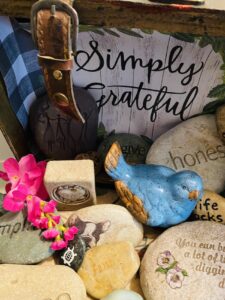
Multitasking
Multitasking used to be something I did all the time. Nowadays I try to focus on one thing at a time. I find I do better when I concern myself with one thing at a time. Studies have shown us that heavy multitaskers were less effective. I just read on the internet that only 2% of the population can multitask and the other 98 % were unable to do so. That tells us that most of our efforts are not really helping us. Neurosciences tell us why multitasking does more harm than good. Look around you and see how multitasking works for or against you.

Timeliness
Timeliness
What is the most stressful time of the year? Does a specific season affect you more than other times? Has someone in your family died and that date shacks you up yearly, or inspires you to respect a specific need?
Is there a season that brightens you up like a month of birthdays in your family? Or a season of traveling? When are things particularly good for you?
What skills did you use? Did you have a time when your memory was top-notch? Linda shares how different opportunities allow us to accomplish things well. What changes are you recognizing?
Timeliness gives us opportunities to grow. We may be able to connect with people more or travel as we become empty nesters. Perhaps car trips are now wonderful for your young children. Look for what you are able to do now and absorb these moments. Enjoy time with other people and develop new relationships as well. Make memories that will keep you upbeat!
Thanks for listening today on these three different issues. Please submit topics and ideas for the podcast. Many of these ideas come to me through clients, community suggestions, and reading.
Take the next step forward, it may put you on the escalator of success.
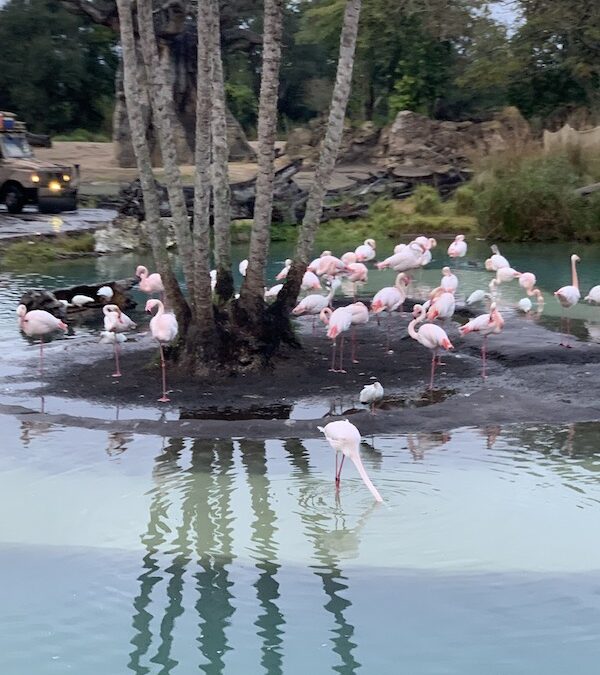
Being Genuine and Liking Yourself
Podcast: Play in new window | Download
Being Genuine and Liking Yourself means gathering from your past the good things and building upon them every day of your life. Welcome to Podcast 224 on being genuine and liking yourself. Being aware of what you are doing and how you are moving ahead comes from your past and present.
Who taught you to live well? Where did you grow up and who set the limits for you? Who kept you accountable? Who watched out for your welfare? Do you have a good conscience as a result of having good boundaries and wholesome values? 
Changes in our times have happened because of a number of things. Standards have changed. People no longer work for one company for a long period of time. We pay for things differently. We don’t all know our neighbors like we once had done. Fewer people are attending a specific denomination church. So much has changed. What are you accepting and what is causing you to question your environment or make changes intentionally in the way you live? Now is a good time to reflect.
Do you connect with a specific type of music? What does that music do for you? Does it connect you with joyful or sad moments? Linda talks about earworms that keep buzzing in your head or mental landmines that wake you in the middle of the night. How do you clarify things that need your attention? Are you looking for answers?

Where do you find light for your thoughts and insight?
Phases of life help us advance. We are all continually going through developmental changes. We are lucky to have businesses and people in our community to help us and support the local schools and events. Linda talks about a man who set an example of this nature in his community. His generosity and the community he lived in benefitted everyone greatly and he will continue to be remembered for a few generations.
Taking the next step forward may put you on the escalator of success.

Avoiding Self-Sabotage
Podcast: Play in new window | Download
Welcome to Podcast on Self Sabotage
1- Do you find that you don’t follow through with promises you have made to yourself? Are you creating self sabotage moments?
2- Are you avoiding things you should be doing?
3- What kind of thinking do you have? Are you positive? Are you always doubting your choices?
4- What steps forward are you taking?
5- Are you learning to be mindful of time, of when you procrastinate, or of the times you sabotage your own goals?
6- Find time to breathe, to think clearly, and to find balance by journaling, listening to music, or taking a walk. 
Unplanned Surprises Can Be Delightful
What neat things are happening to you that weren’t planned? Linda tells us about her cornstalks that surprised her. What surprising things have happened to you this week?
Bucket List Ideas
This section of the podcast talk about what a bucket list includes. Why even have a bucket list? Does it mean that you need to plan and dream about? Bucket Lists are meant to be up lifting.

Buckets have all kinds of contents!
1- Do you want to travel?
2- Do you want to connect with special people?
3- Do you want to learn a language?
4- What goals do you want to eliminate?
5- Do you have an old bucket list that doesn’t have meaning anymore? Throw it out and begin again.
6- Do you need to talk to friends or learn a new hobby?
“Take the first step forward, it may put you on the escalator of success” —Linda’s Own
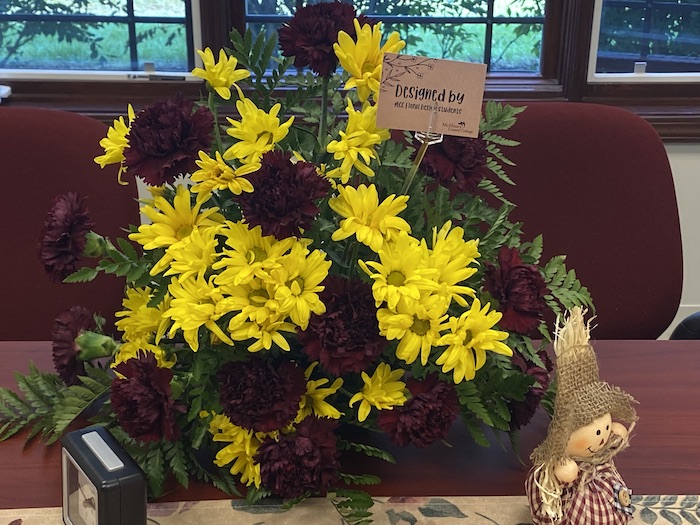
Developing Resilience and Joy
Podcast: Play in new window | Download
Welcome to Podcast 222 which talks about resilience, moving forward, and staying connected.
Resilience
Developing resilience is really essential to being happy and moving forward. Are you a happy person? Why do some people have resilience and others don’t? Learning to adapt to change and stay upbeat requires recognizing our attitudes and self-talk. Are you able to toss all your old thoughts and replace them with up-to-date information? Who do you hang around on a daily basis that is educated, wise, and happy? Are they good mentors for you? Do you have hobbies and fun things to do not only when you are alone, but when you are with other people?

Kids entertain themselves and one another.
Watching children who are content and successful help us see things differently. Watching children and well-balanced people are good examples of who can become mentors for us. Kids create their own games; they find things to do.
Are you faith-filled and attending a worship service on a regular and frequent basis? Faith-filled individuals are kind and peaceful. They know they cannot control everything. They are also involved in many things. They team up like kids on a teeter-totter who balance one another out. Everybody has a cross to bear, but with teamwork and being with others we are able to walk through things. We must not isolate. Staying connected is essential. Avoid being isolated and get involved. How do you do that? Do you have hobbies? Are you in a group at your local church? Do you play tennis, golf, volleyball, or have a workout group?
Do you gather with friends on a regular basis? Maybe they are neighbors who share a common boundary or share an interest in gardening.
Making a Bucket List
We all need to create a vision for doing more; for doing different things. We learn to develop our thinking by doing different activities. We make bucket lists. Make your list and keep updating it. Things like traveling and learning about other cultures. Learning to play an instrument or going into another profession. Be visionary and list 50 things you want to do. You won’t regret it.
We learn by seeing people and how others have walked down the path you are walking down at the current time. Sometimes we learn not to go in one direction, but to rather wait. We need to trust others. Linda shares in this podcast how she and her husband trusted a man called POPS. Tony merely gave POPS a 20-dollar bill and he kept a promise to them that ended up changing their lives.
Give yourself space. Keep your thinking open. Ask yourself many questions. Decide how you want to spend your money. and your time on earth. Who do you have to connect with? How can I figure things out? Where do I get the information I need? What do you need to investigate?
What Things Are Changing Around You?
Are you reconnecting with other people after these Covid years? We all need to help one another feel essential again. We need to celebrate the good times and divide the negative moments. We need to see the kids as they gather and play together. The times when they go places together.
Remember that asking is wisdom, not weakness.
“Take the first step, it may put you on the Escalator of Success!” Linda Gullo
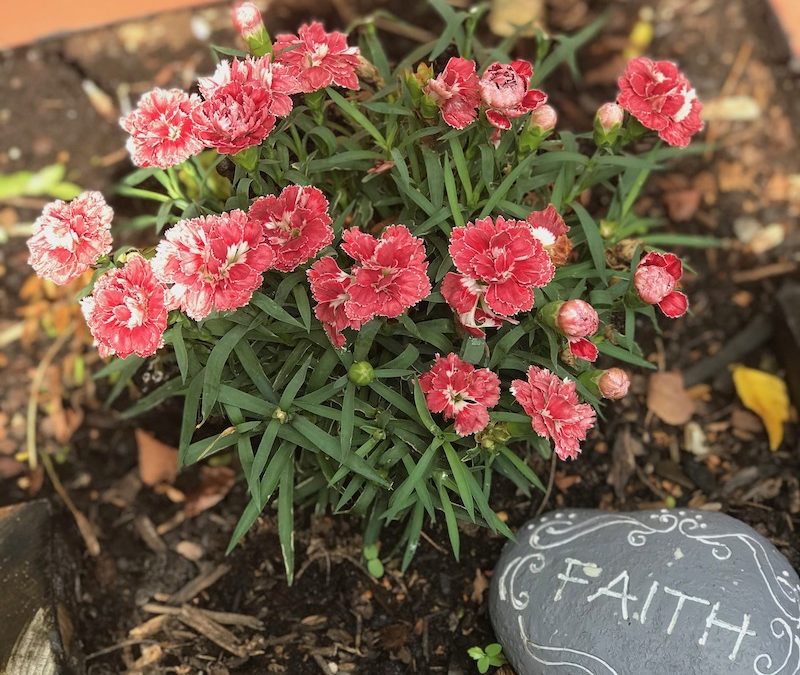
Adapting to Change
Podcast: Play in new window | Download
What pathway are you taking?
What direction do you want to go in in life? Do you need to learn something new? Linda shares how food poisoning changed her thinking this week. What road do you have to take to go forward in your work or with personal issues?
What do you take for granted?
Do you take things for granted? Linda’s mom did not drive so she learned how normal it was to walk more when she was a kid and how her mom accommodated her needs of being a homemaker. Exercise can become a natural part of our lives. Think of ways to move more and incorporate it into your life.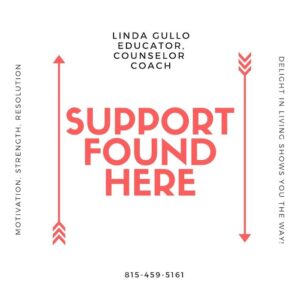
How are you Adapting to Change?
Constantly we are all making decisions. How are you getting chores done? When do you schedule things? Are there days that are just overwhelming? Caring for our family needs or our jobs change by the moment and challenges us to keep on top of everything. Where are you getting support?
Mini Miracles from Minor Moments
We are richly blessed with Mini Miracles and do not even realize it. A new store opened next to our Office Mart that saved me a trip across town. A simple mini miracle that saved me time and energy. 
Decision Making
What triggered you to make the last purchase? Was it a commercial on QVC? Was it a food item you saw on TV? Are you comparing yourself to a neighbor? Where do you go for insights? Linda gives us a few ideas.
Feel free to join us on Saturday for BRAINSTORMING at 9 am in the Delight in Living, Ltd. Office. It is a great group to help clarify your thinking. Call to register at 815-459-5161 or text linda@delightinliving.com.
